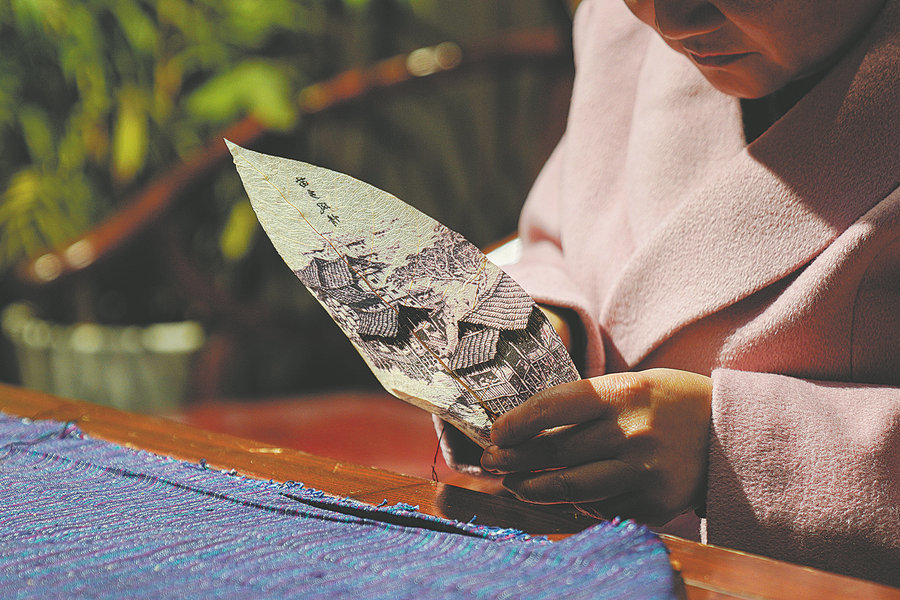

Yang collected thousands of leaves from the forest in Fanjing Mountain, and after steaming, boiling and tanning, the flesh was removed, exposing the veins. When they dried, the leaves became brittle.
During that time her room was like a swamp, with leaves of all shapes and sizes covering the floor, with the smell of decaying plants filling the air.
The biggest technical challenge Yang faced was improving the flexibility of the leaves and making them as soft as cloth.
In September 2011, she visited Shen Min, a local folklore expert and botanist, several times until he told her to soak the leaves in acidic water to weaken the alkalinity of the leaves, thus making the fibers of the veins tough enough to embroider on.
On Oct 16, a day she will never forget, Yang finally created a shiny, thin and unbreakable piece of leaf vein. Her idea of leaf-vein embroidery came to fruition after hundreds of experiments.
In November of the same year, her work won her the special award of "Guizhou artisan", fame and a great number of orders.
Two years later, Yang opened an embroidery processing factory and offered jobs to more than 500 laid-off female workers, rural women and people with disabilities.
The leaves turn soft after the process, but are also extremely fragile. Yang claims that from 2011 to now, there are only fewer than 20 people who can independently complete the whole leaf-embroidery process in Tongren.
"Usually the embroiderers who can handle the job are those who have already practiced embroidery for decades," she says.
Yang claims that almost every embroiderer has a collection of handicrafts in her home that could fill a museum.
"Guizhou is a province with a large number of ethnic groups and has a long history of ethnic embroidery skills," she says.
"I will keep doing the leaf-vein embroidery for the rest of my life because it is meaningful."
In the next five years, Yang has a few plans related to the number 100.
"I will work with 100 artisans or companies to expand my product range to 100, and help 100 mothers to become excellent artisans," she says.
Wang Jin contributed to the story.